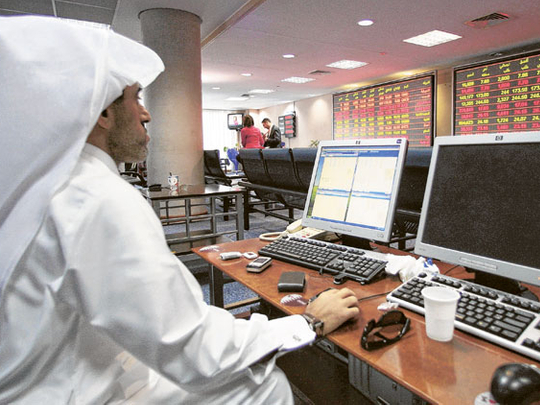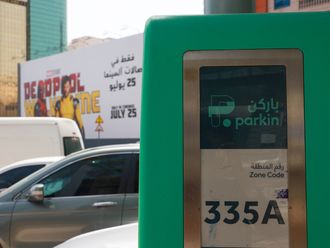
Manama: Arabian Gulf bonds are beating emerging-market debt this year as increasing revenue from oil exports help the region withstand global financial-market turmoil better than most developing nations.
Dollar notes from the Gulf Cooperation Council have returned 6 per cent in 2011, according to the HSBC/Nasdaq Dubai GCC US Dollar Sukuk/Bond Index. Emerging-market securities worldwide gained 3.2 per cent, JPMorgan Chase & Co. data show.
The average cost of insuring Middle East's sovereign debt rose 104 basis points this year to 305 on September 23, trailing similar measures that jumped 132 to 276 in the Asia-Pacific region, according to data provider CMA.
Liquidity increases
Crude prices averaging about 23 per cent more this year than a year earlier, according to Bloomberg data, will help economies of the Middle East and North Africa expand faster, the World Bank said last week. It raised its 2011 growth estimate for the region to 4.1 per cent from 3.6 per cent.
Members of the Organisation of Petroleum Exporting Countries, led by Saudi Arabia and the United Arab Emirates, will earn a record $1 trillion this year, according to the US Energy Department.
"Higher oil prices in the first half have boosted investor confidence and re-allocations from more troubled parts of the region have helped increase liquidity in the local banking sector," Alia Moubayed, London-based head of research for the Middle East and North Africa at Barclays Capital, said in a telephone interview on September 22.
The International Monetary Fund on September 20 cut its forecast for global growth to 4 per cent this year and predicted "severe" repercussions if Europe fails to contain its debt crisis or US policy makers deadlock over a fiscal plan. Global stocks entered their first bear market in two years last week on concern Greek insolvency is inevitable and Europe can't prevent the damage.












